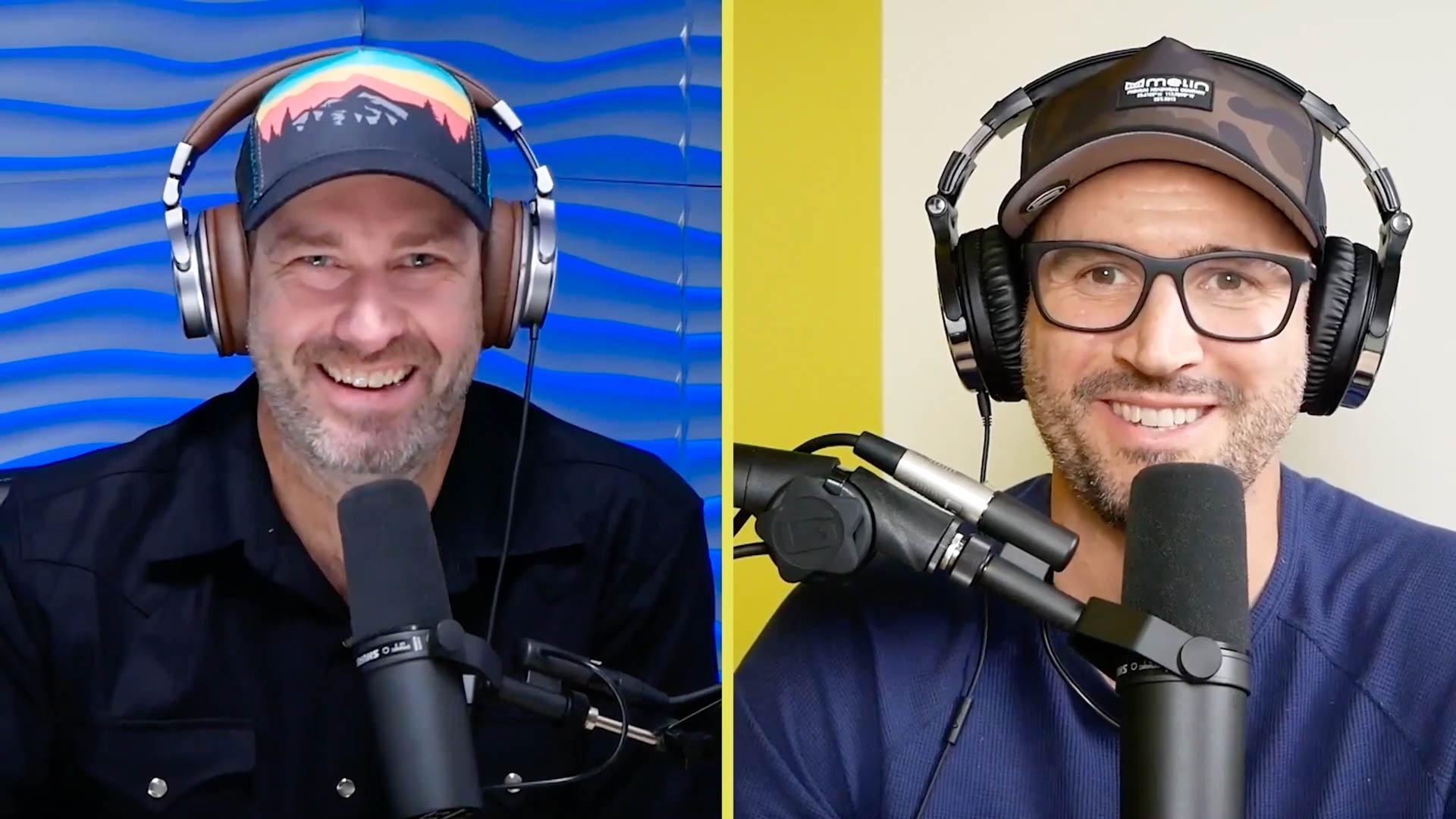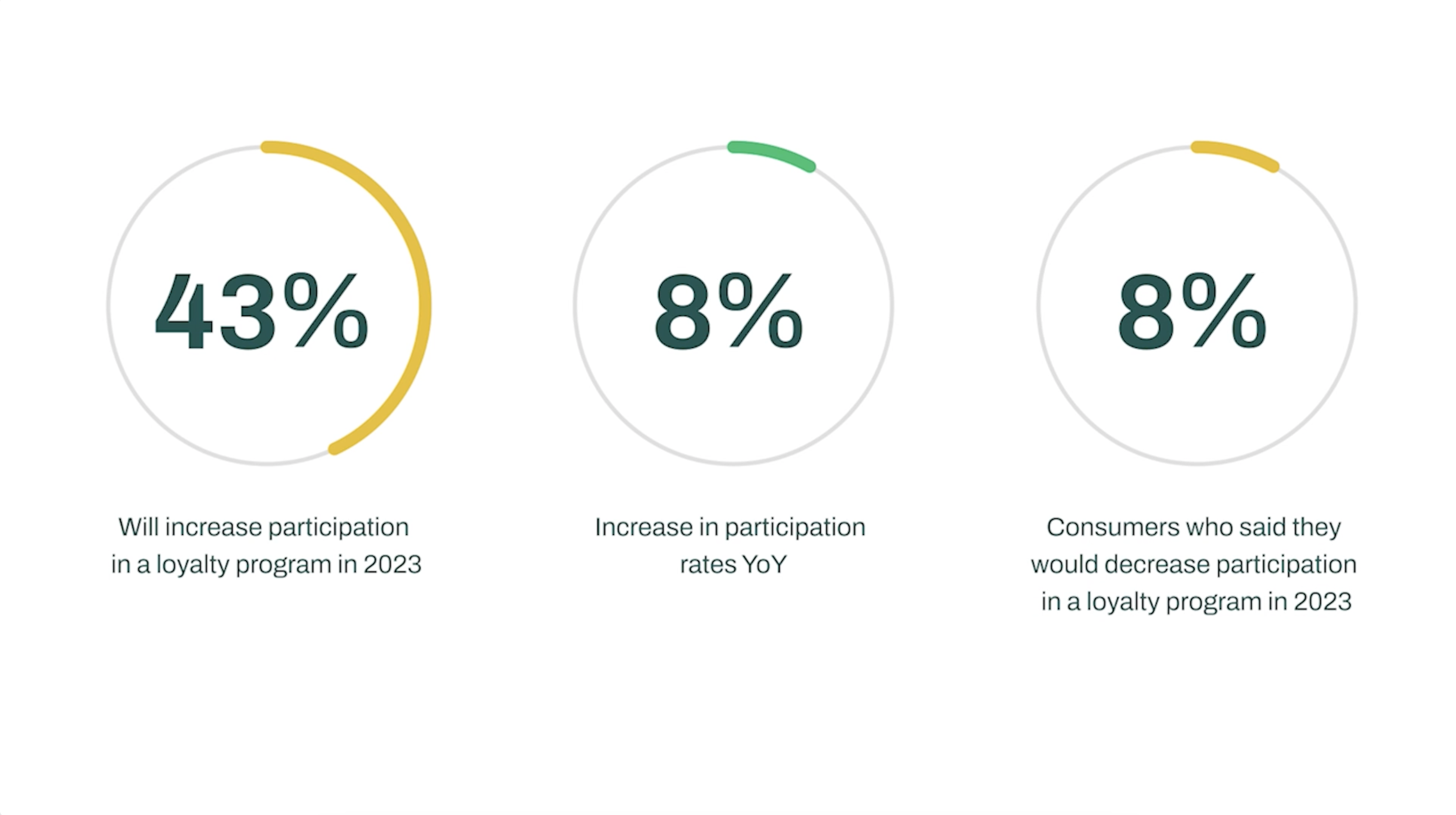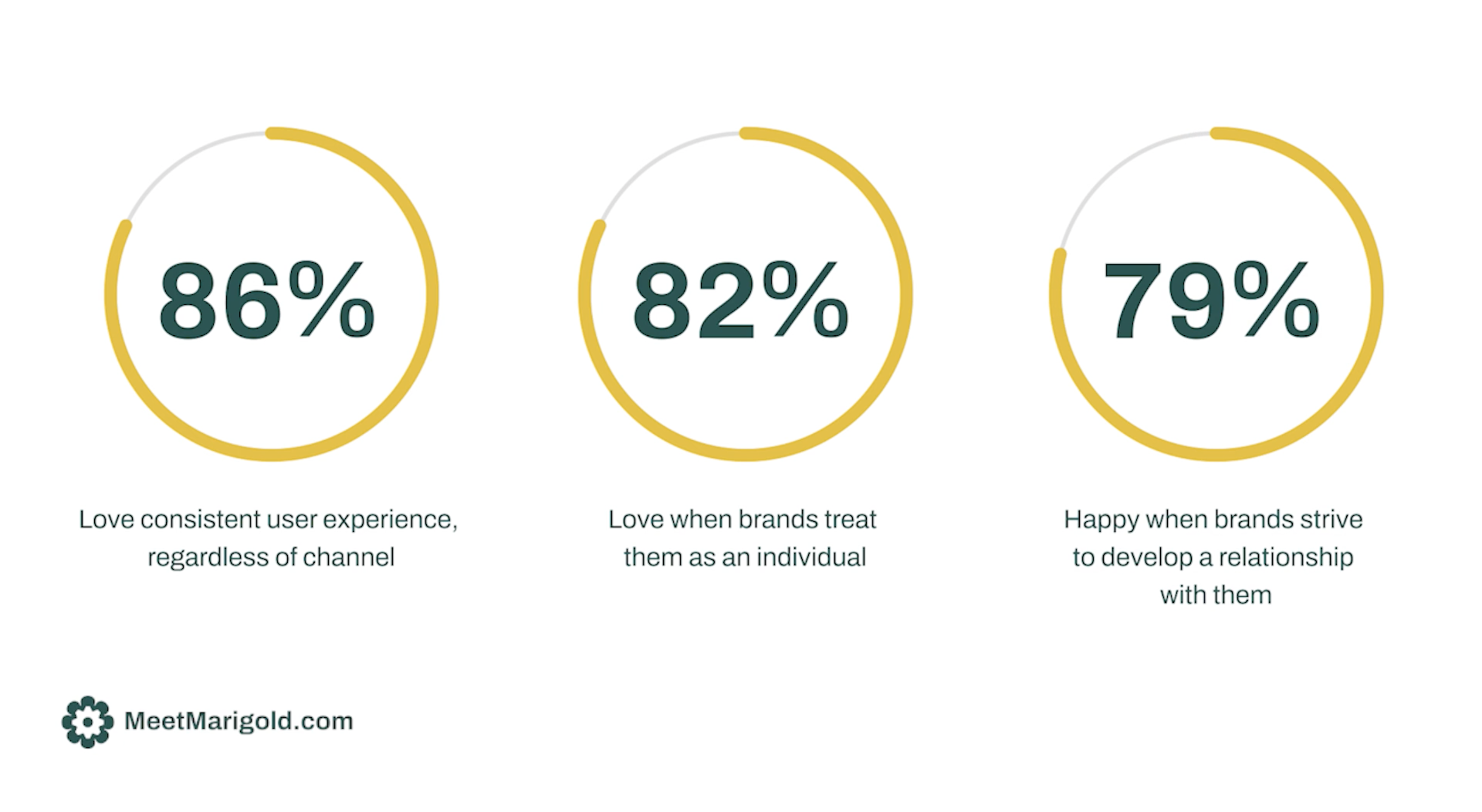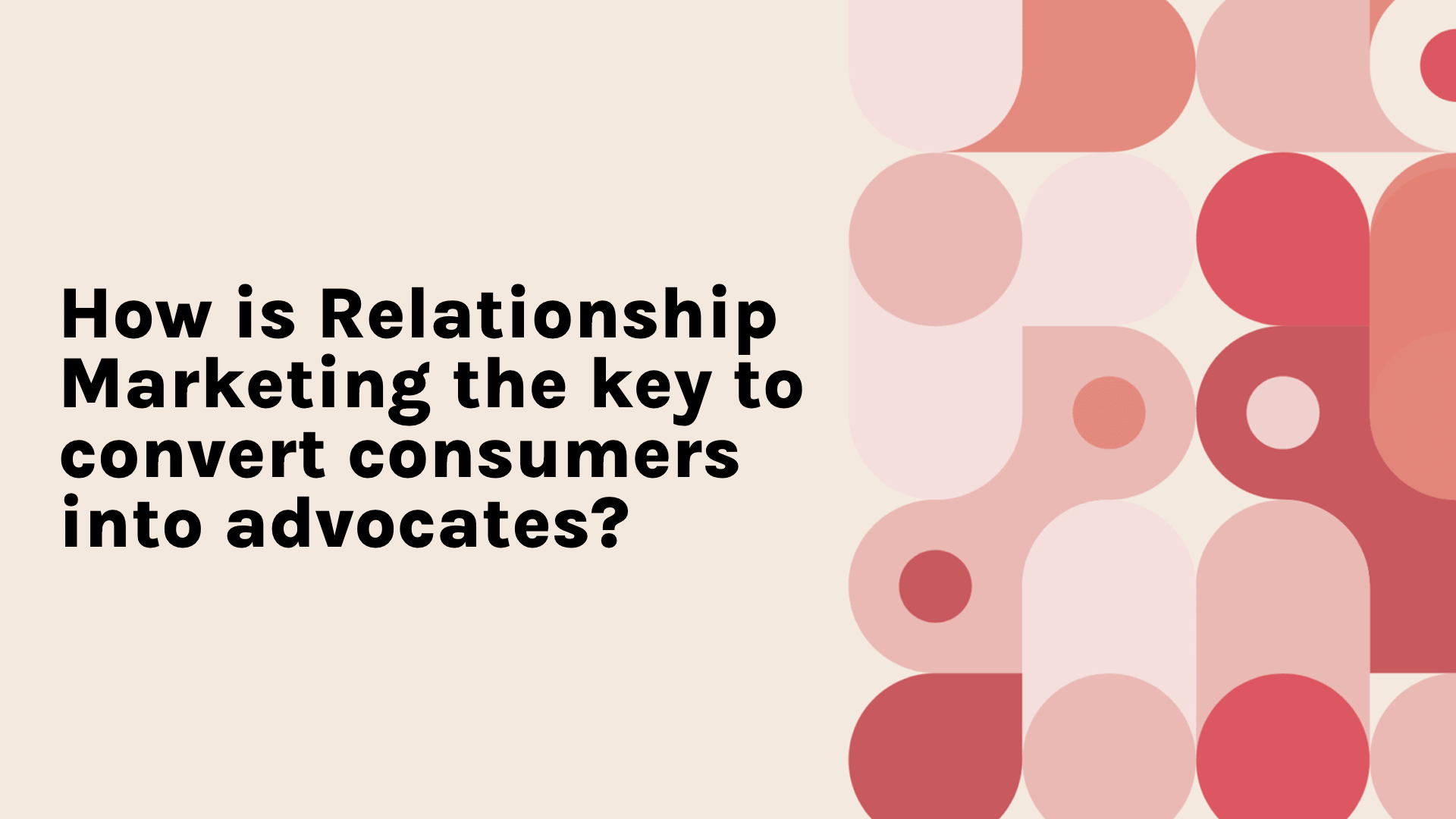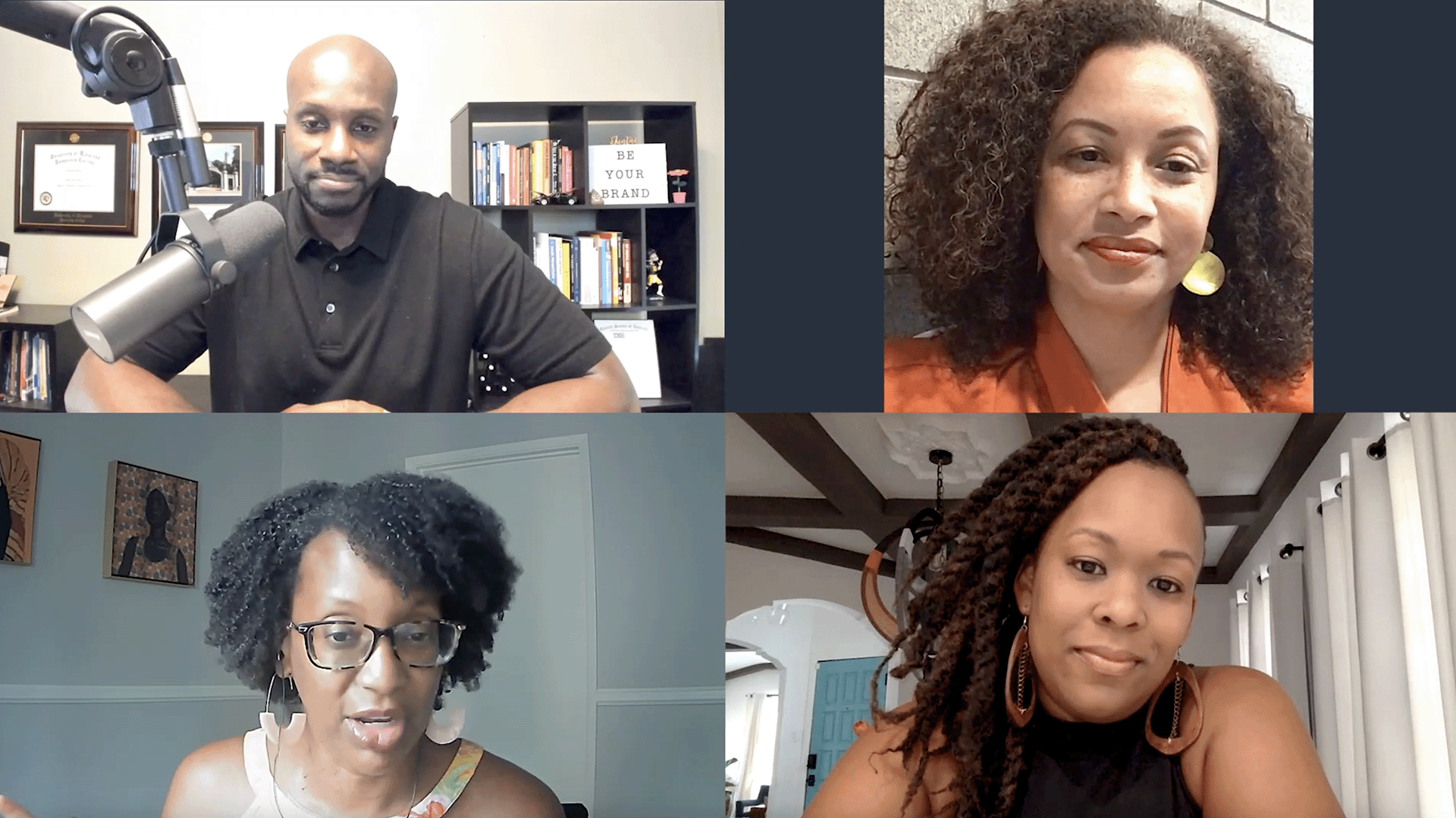Clarity in an Uncertain Future: Cookies, Privacy and other Marketing Roadblocks
- 0.5
- 1
- 1.25
- 1.5
- 1.75
- 2
Richard: Thank you for joining us for today's session, where we are going to be talking about clarity in an uncertain future, cookies, privacy and other marketing roadblocks. And I'm very pleased to have co- hosting this session with me today VP of Content at Cheetah Digital, Mr. Tim Glomb.
Tim Glomb: Good to see you Rich. You're in London today. I am in Denver. I'm glad you're wearing your uniform because everyone knows we are both hosts of the podcast Thinking Caps. So I'm glad to see you're wearing your cap today.
Richard: Yeah. Never without it. All right. Let's crack on. So there's going to be three sections of what we're going to talk about today. We're going to talk about the timeline of disruption that's throwing up these marketing roadblocks. We're then going to look at some differing perspective across the ecosystem. So what's the opinions coming out of big tech? What's the perspectives of marketers, of advertisers, et cetera? And then the third section is we're going to look at triangulating around what's the answer, what should marketers be doing to not just survive the death of the cookie, but to thrive from it?
Tim Glomb: Absolutely. I can't wait for that section, Rich, because people, we do have some great solutions, we have some great advice. So stick in there. Section three is going to be a lot of fun.
Richard: All right. Well, first off, in terms of the experts that we've got joining us today is Scott Cunningham. So why don't you introduce Scott?
Tim Glomb: Yeah, sure, Rich. Now, when we think about the death of the cookie, there's no better person that I can think of then Scott Cunningham. Scott's a longtime friend of Thinking Caps and Richard, myself. He's here in Denver. Scott was the founder of the Interactive Advertising Bureau, the IAB's Tech Lab. He's a former president of Media Group Interactive, a pioneer in developing USATODAY. com and currently a brand safety expert for many different types of brands. And he can really put this issue down into layman's terms. In fact, we had Scott on our podcast Thinking Caps several times, and I want to share this perspective that we recorded way back in March of 2020. So even last year, he does a great job explaining, but very simply what is happening technically when we talk about the death of the cookie, as well as lays out all the key players involved from media companies, brands and the intermediaries between them. So I want to play this clip first to level the playing field. What does it really mean to them?
Scott Cunningham: Well, so the cookie in it itself is nothing more than a piece of technology that stored information around third- party data. So what are we really talking about? We're talking about the migration away from transacting on third- party data. Cookie just happens to be the technical means by which this has been described in the past. And so when we think about then the big picture of moving away from third- party data, we have to move somewhere. We have to move in what this migration path looks like into first party data. And when we think about first party data, we think about, well, who are the entities in the advertising and marketing supply chain that have first party relationships? And that's brand marketers and publishers. Everybody else in the middle of that is an intermediary from big agency holding companies to supply side tech platforms to data management platforms. These are all intermediaries without a relationship to an end consumer. So those entities, brand market and publishers that have first party relationships really do over the next two years stand to be able to leverage any element of advertising transaction, whether it's through programmatic channels, automated channels, private marketplaces, direct type deals. Obviously, there's a large portion of regulatory compliance that we'll talk about it here a little bit. But on this migration path over the next one to two years away from third- party data, it does fundamentally change what entities are transacting on in the supply chain back to first party information. What I mean first party information, I really do mean those entities that do have that relationship with the end user.
Tim Glomb: They own it. They actually have a one- to- one relationship. So what you're saying is publishers have a one- to- one, people who have subscribed, even if they lightly subscribe, or if they're behind a paywall and then brand marketers who have gone directly to consumers and said, hey, forget Facebook, forget Google. You want to have a relationship? I'm Nike, I'm Adidas, I'm whomever. That's the kind of first party day that you're saying.
Scott Cunningham: Yeah, that's correct. And when you think about it in terms of the World Wide Web, I want to be careful, the World Wide Web different from apps, different from CTV, even though we can still talk about first party data across that. But when we talk about the death of the cookie, we are talking about the World Wide Web and those publishers and brand marketers that do business on the World Wide Web. And what that really does mean is when Google made these announcements that there's a 24 month window, Google is one of the last browsers to allow transactions of third- party data. What they've effectively done is announced that those are end up days, they're sunsetting that type of capability.
Richard: And with all of this change going on, marketers might be forgiven for feeling just a little bit like Dennis played by the brilliant comedy legend Wayne Knight.
Tim Glomb: Richard, it was a ton of fun shooting those, but kudos to you who wrote the script for this legendary actor on one of the biggest TV shows of all time. So thank you. Very funny stuff.
Richard: Ah, I mean, he's used to Shakespeare and now he gets me bright scripts. Yeah. Poor man. All right. Now let's just cycle back to see kind of how we actually got here with this current state of disruption given the interconnected nature of legislation and response to privacy from the tech ecosystem. Now it shouldn't be forgotten that this all really started with a scandal and the Cambridge Analytica whistleblower, Chris Wylie, who we hope to be speaking later at Signals 21.
Tim Glomb: Yep. We're trying to get that done right now. So hopefully Chris will come in and join us later.
Richard: Now, let's just track back. Where did this start? If you remember, the Cambridge Analytica scandal actually started in March the 17th, 2018, when it was actually exposed, revealing that data from 87 million Facebook profiles had actually been harvested for the agency.
Tim Glomb: Absolutely, Richard. And that was followed up pretty quickly with the GDPR, the General Data Protection Regulation rolling out May 25th, 2018. I remember that day, like it was yesterday, you, me, and Scott McNealy, we're all emailing each other on that day. So another key milestone.
Richard: Yeah. Then it was January 1st, 2020, where the California Consumer Privacy Act the CCPA, which is a state statute that dictates how businesses deal with personal information of Californian residents. That was rolled out January 1st, 2020.
Tim Glomb: Yeah, big one. And then we just saw in that clip with Wayne Knight in January of 2020, Google announces they'll phase out support for third- party cookies within two years. And boom, now we have the session.
Richard: Yeah. And they were actually the last of the major browsers to actually do so. So next up was March 24th, 2020, where Apple releases enhancement to their Intelligent Tracking Prevention, ITP, completely blocking third- party cookie tracking on Safari 13. 1 iOS and iPadOS 13.4.
Tim Glomb: Yep. Well, ramp forward to February in 2021, Mozilla announces Total Cookie Protection in Firefox 86, they change the confines of cookies to their original site, preventing them from tracking users across the internet. So isolated use of cookies only.
Richard: Yeah. And then March 2nd, 2021, Virginia's Consumer Data Protection Act is signed into law, protecting the data and privacy of Virginia residents starting on January 1st, 2023.
Tim Glomb: Yeah. And we covered that in Thinking Caps when it came out that week. And then you move to April of 2021, Apple releases iOS 14, including in it the ability for users to opt out of being tracked by apps on their phones. So essentially killing the IDFA, the Identifier for Advertisers. Big blow there from another tech company.
Richard: Yeah. And then June, 21st, 2021 is where Google basically came out and said that, look, it's going to take us a lot longer to actually get the ecosystem ready for the death of the third- party cookie. So they basically moved out the timeline for phasing out cookies and basically giving a new period of grace for advertisers and publishers that will start in late 2022 with stage two, which is the actual phasing out of cookies, which will start in mid 2023 and then end in late 2023. So that's now the new timeline for the death of a third- party cookie.
Tim Glomb: I would've loved to have been in those calls and meetings when they were deciding to extend that death sentence. But anyway, I digressed. And July 8th, a big one here in Colorado affecting me personally and you before you move back to the UK, Colorado Privacy Act, it will protect residents by enforcing consumer privacy laws starting July 1st, 2023. So Colorado following suit of Virginia and California.
Richard: Yeah. And then on July, 20th, 2021 is where we really started to see some of the teeth from all of this legislation and the California Attorney General's Office sending out CCPA enforcement letters to a whole range of advertisers, social media sites, data brokers, and ad tech firms regarding cookie tracking as a data sale. And we cover that also on Thinking Caps. So that is the timeline of this disruption. So if we have actually really written Dennis's little skit there accurately, it would've been more than just a couple of beeps on his throne. It would've had him going crazy.
Tim Glomb: Don't worry I have Wayne Knight on speed dial. And I told him the next time there's a disruption, I got to come out and shoot a new video with him. So that the saga will continue as we know, this timeline is not done. There will be more disruption.
Richard: Yeah, there's going to be more sequels than Jurassic Park. So we look forward to that. All right. So now let's dig into what are the differing perspectives that we are seeing across the marketing, advertising and tech ecosystem. So firstly, we're going to start with the consumer view, right? What do consumers think about all of this? Well, we can certainly see more consumer awareness around what marketing tactics are considered creepy versus cool. And there's some interesting bits of data here.
Tim Glomb: This is from our 2021 Consumer Trends Index Report, which is available for free on our website, by the way, cheetahdigital. com in the Resources section. I want to share a couple of these. How would you feel if a brand or retailer interacted with you in the following ways, please indicate whether you feel it's creep or cool, recommendations from a brand based on past purchases. 73% are okay with that. And that makes sense. You've transacted. Getting an email reminder or an advertisement about a product I'd abandoned in a cart from a brand. 54% are good with that. 66% said that they do not like adverts that follow them across devices. Furthermore, 69% said adverts relating to something I had talked about near a smart device is creepy. And lastly, but a big one, the advertisements from companies they don't know based on their location data, a whopping 72% said, no go, that's creepy. So again from our 2021 Consumer Trends Index Report.
Richard: Now, and as our Senior Analyst of Privacy and Protection, Alex Krylov, says, there's a big difference between targeting a golden audience segment with a silver bullet of an offer and going through a consumer's proverbial trash by analyzing their browsing history. And so a lot of these things that we're seeing from a consumer perspective, it's kind of etiquette move to the digital space. And it is common sense, I think. And I'd argue that even in the current third- party cookie- powered world, marketers aren't exactly winning when it comes to personalization. In fact, in the 2021 Digital Consumer Trend Index Report, in the last six months, consumers reported that 30% of them have received creepy personalization based on information that they didn't share directly with the brand. 42% of consumers have received irrelevant content and offers. So lots of space for improvement when it comes to actually getting personalization right.
Tim Glomb: That's right. In fact, Rich, consumers are taking proactive steps to actually protect their own privacy and their own data. So here are a few stats for you. 22% of consumers have paid for premium internet security software, maybe that's blocking them or keeping them safe from tracking, et cetera, 27% of consumers have gone to the trouble of installing ad blocking tech. Very, very familiar. I wouldn't be surprised if that stat was actually higher in some places. And 22% of consumers have privacy mode on a pre- installed browser. So definitely some trends there, the consumers are taking matters into their own hands.
Richard: Yeah, no doubt. Okay. So that gives us a pretty clear indication of what the consumer attitudes are. Let's take a look now at big techs view, specifically Google and Apple. So big techs attitude on this is quite polarized as one might expect, but perhaps the most headlining aspects, the battle between Apple and Facebook with very different competing visions of the internet. And I just want to read this quote from Tim Cook, which was in January, 2021, which really serves up their view, our technology does not need vast troves of personal data stitched together across dozens of website and apps in order to succeed. Advertising existed and thrived for decades without it. And we are here today because the path of least resistance is rarely the path of wisdom. If a business is built on misleading users on data exploitation, on choices that are no choices at all, then it does not deserve our praise. It deserves reform. We should not look away from the bigger picture in a moment of rampant disinformation and conspiracy theories juiced by algorithms. We can no longer turn a blind eye to a theory of technology that says all engagement is good engagement, the longer, the better, and all with the goal of collecting as much data as possible. It is long past time to stop pretending that this approach doesn't come with a cost of polarization, of lost trust, and yes, of violence. A social dilemma cannot be allowed to become a social catastrophe. Tim Cook, Apple CEO. Very, very strong words, Tim.
Tim Glomb: Well, it is a bold statement and I think it's one that consumers love. I don't know how true it is when you're trying to run a company like Apple, but I'll leave my opinion out of this. But Rich, make no bones about it, Apple is taking this directly to consumers across the globe, the billions of them out there. In fact, they've taken it into the living rooms of primetime TV here in North America and all over the globe with ads like this. So if you haven't seen this, check it out and you'll understand what we're talking about.
Richard: Felix.
Speaker 4: Name.
Richard: Felix.
Speaker 4: Date of birth.
Richard: November 5th, 1986.
Speaker 4: Tracking current location.
Speaker 7: Here's what you said last month. ( singing)
Speaker 8: inaudible.
Richard: Yeah, Tim, look, there's no question with ads like that, Apple is clearly doing its part to influence consumer attitudes around privacy. So we'll watch that space very carefully as their kind of campaign, if you like, continues. But I think it's perhaps Google that is providing the clearest instruction to marketers about what they do about all of this change. And they stated in March on their blog that first party relationships are vital. And I quote, developing strong relationships with customers has always been critical for brands to build a successful business. And this becomes even more vital in a privacy- first world. We will continue to support first party relationships on our platforms for partners in which they have direct connections with their own customers. And we'll deepen our support for solutions that build on these direct relationships between consumers and the brands and publishers that they engage with.
Tim Glomb: Now, Rich, great statement. And this is going to come in, this is crucial in our third section where we talk about the solution. It's great to hear Google say first party relationships rule. And that's what we're all about here at Cheetah Digital. So I'm excited to get to section three, but what else do we have? What other perspectives do we have?
Richard: Well, we need to also being signals look at the marketers view. And we actually did some research with Ad Age on this, which I think gives us a sort of fairly informative picture of how prepared we all are for the death of the third- party cookie. So the Ad Age research was entitled an optimal path to personalization. It gives us this view on what marketers are thinking. We asked, which statement describes your brand's plans about cookies and third- party data? 13.4% said, we plan on continuing to use cookies and third- party data, 35.7% said, we have all will greatly reduce reliance on cookies and third- party data. And then 50.9% said that we are investigating how to reduce our reliance on cookies. So pretty much gives us a view that we came quite close to the first deadline and then it got extended. We still, I think in fairly embryonic stage of actually evaluating what the path forward is from most marketers and most brands. And then secondly, we asked marketers how important do you believe one- to- one personalization will be to your efforts in the next 12 months? 7. 5% said not important. So hardly any of them. And then 44.2% said that it's somewhat important. And then the largest segment, 48.3% said, it's very to extremely important. So we know that one- to- one personalization is going to be extremely important moving forward. We just have to figure out how to do that in the era of a privacy- first world.
Tim Glomb: Yeah. And that is the conundrum, Rich, right? Consumers want more personalization and more privacy. And how do you do that? But it's very clear that that is the paradox that marketers are grappling with right now. So how do we serve up more personalization when privacy changes appear to be make it harder to do that? And we can see that marketers are still primarily right now using segments or cohort- based personalization, which really isn't personalization at all, in my opinion, versus true one- to- one personalization. In that same report, we asked, when personalizing content offers or ads, which of the following have you used or planned to use? And 68% said only customize content to segments or group of customers. So even though there's the desire to get to one- to- one, there's really not the plan in the short term to do it, whereas 38% said they will personalize it to one- to- one level using known data about an individual. And then lastly, 23.8% said they will use advanced personalization at a one- to- one level using known data, including predictive machine learning or AI data. So not enough in my opinion are planning for that true one- to- one, but we're going to talk about that in section three. I know we're not there yet, though.
Richard: And we're also going to see, I think as we move forward, as we get closer to that kind of cliff edge of the deprecation of third- party cookie, we're going to see marketers ramp up and hopefully get more people into using advanced personalization at a one- to- one level using known data. All right. Well, that brings us to another section of the community that are impacted by these changes to privacy and the death of the third- party cookie. And that is the advertisers. So one of the many questions, and I think many of us have had is that will there be a replacement for third- party cookie? And many in the ad tech ecosystem have been looking at alternatives, including hashed email addresses and other approaches. But it's safe to say that none have shown any material evidence that they can provide a realistic and dominant alternative. Now here's one chief media officer had to say, which was in Digiday's anonymized Confession series. And I quote, " We've tested many of these solutions and don't feel like there's much of a future there. We've tested these alternatives in Europe and the US and the results have been underwhelming, whether it's a very buggy service that doesn't really do what it's meant to or they just don't have the requisite scale for us. We used one in France where we had around 30% of our audience and not all of that was accurate. The data strategies that these companies aren't progressive enough."
Tim Glomb: Wow. Peeling back the covers through a confession. And Rich, I love that series that they do there in Digiday, the Confession series. Maybe we should do that for Thinking Caps, blur people out, have them come tell their real feelings. I like that idea.
Richard: It's definitely one way of actually getting that raw perspective that people might not be comfortable sharing.
Tim Glomb: Yeah. Yeah. Look, let's be honest. I mean, there's people watching right now and we've talked to people off the record where that Confession series, we're hearing that, it resonates. So these cohorts, these ad hoc solutions that big tech are throwing out there, they're just not enough. They're not scaling, they're not all enough fast enough.
Richard: Well, I think we can make a fairly firm prediction here. And that is if you are waiting for an alternative to the third- party cookie to be magically created and become dominant across the ad tech ecosystem with all of this polarization of viewpoints on competing visions of the internet, you're barking up the wrong tree, that is for sure. There isn't going to be some sort of magic replacement for the cookies. So the question is, what do you do about it? How do we triangulate to get an answer for what we should do next?
Tim Glomb: Exactly. Rich. We need to dig into these answer. So we set our good friend and Signals reporter Charlie Crowe off to talk to all of his executive friends. Now, Charlie is more connected than anybody I know when it comes into media advertising and brands. So he spoke to Bastien, who's the VP of Group Marketing and Data at Renault. And this was his take.
Charlie Crowe: Do you think that the advertising industry, CMOs in general, have enough choice when it comes to data opportunities and insights outside of the duopoly and the major war gardens?
Bastien Parizot: Short answer, no. But actually, if I elaborate a little bit, I don't even think it's relevant now. I mean, I know what I'm going to say is very obvious. But with the cookies disappearing soon, maybe in a year, maybe a bit more, actually I think we should look only at two things and this is what I'm focused on, how do we really look internally at the data that we get? And I'm lucky enough to sit in an industry where we really reach into the depth of the data we could access to, because you get usage and everything. And second, I'd say the focus is really making sure you have strong data partnerships. So I think it's, to me, it's coming back to second party data partnership or whatever you want to call that. I think the times of looking outside and access to data is gone anyway. So we should really focus our energy into those two pieces. I might be wrong, but this is why I'm focusing my time.
Richard: So Tim, very interesting. Renault is essentially moving away from third- party data and then looking at what consumer data Renault have internally that they can use. And then also exploring second party data relationships. Now, many others, including the analysts are also promoting zero- party data as a sensible strategy, given the need to balance privacy and personalization. And this is data that a consumer willingly gives a brand in return for getting better personalized products or content or services or for an exchange of value, such as a chance to win something or a discount.
Tim Glomb: Yeah, Rich. Those are great examples. There are a ton of other examples and we're going to have tons of sessions talking about them. But I know you have a great quote and someone you like to lean on.
Richard: Fatemeh Khatibloo, who spoke at Signals last year, is a Forester Analyst, recently just left Forester. But Fatemeh, she was the person that actually came up and coined the term zero- party data. And I've been a big fan of her work for some time. And she says that zero- party data is extremely valuable and will improve the effectiveness of your firm's personalization efforts. But not only that, it also will improve the effectiveness of your advertising if you use zero- party data with first- party data to deliver more effective ads. So that's something directly tied to this whole subject. But we've got other sessions in Signals to come into that in a little bit more later on in the subsequent weeks.
Tim Glomb: Yeah. In fact, Rich, I got to call it out right now because you're the co- host of, in week three of Signals, we have a session titled zero- party data, building crucial first party relationships. You host it with Nick Watson on our Cheetah Experiences platform. And you can hear a range of ideas, examples. In fact, we're going to hear directly from the mouths of brands like GSK and Arsenal Football Club on how they're actually doing that. So go check out that session, find it under the Resources tab. You have to save a seat, it'll dive deep into the weeds and give you a treasure trove of tools to put into your strategy.
Richard: Let's think about this. As brands and marketers start to really address what they're going to do in this cookieless future. They are starting to build first- party relationships and incentivize direct engagement and many in the industry, including the IAB who started to promote the idea of needing a consumer value exchange. I quote, " Are we operating in a way that provides a clear value exchange to consumers in the long term?" This is some IAB Outlook: 2021 Digital Ad Ecosystem. So great to see the IAB are actually raising that question with marketers because in this new world of trying to incentivize that direct engagement, you have to think through what's in it for the consumer, what's the value exchange.
Tim Glomb: Well, I think what's interesting there, Rich, is they are in the business of getting you to spend more money. It's an advertising bureau. So when they even say that your ads should have a value exchange, not just your emails, your owned channels, then it's true, you have to have that value exchange strategy across everything. And look, we also know from our own consumer research that 79% of consumers will trade personal and preference data, that psycho graphic data you need in their head for the chance to win a prize. And 80% of consumers will trade personal preference data for early or exclusive access to something, whether that's your loyalty program or a product or something. So again, stats from our 2021 Consumer Trends Index, which you can get it at cheetahdigital. com under the Resources tab. This is great, great stuff here. In fact, there's many types of value exchange opportunities that the Digital Trends Research has shown consumers will accept in return for that crucial data. That includes, as you mentioned, discounts, competitions, unlocking content, even loyalty points, surprise and delight, et cetera. So some really good ways you can that value exchange. There's not just one- size- fits- all. You can get creative and get your consumers engaged.
Richard: Absolutely. And then the IAB lists out three areas of what value means to consumers in return for that direct engagement and data sharing that's actually needed to power one- to- one relationships. And so here they are. And for me, the first two are basically the table stakes, free services, personalized discounts, but it's the third area where brands really can differentiate themselves. So that brings us to the most important aspect of rethinking the relationship between brands, consumers and personalization in the cookieless future. And that is the importance of loyalty programs, because it's loyalty programs that when done well govern the value exchange between brand and consumers, not just for a single interaction, but for direct engagement over the customer lifetime. And with contextually differentiated, personalized experiences, they can be the conduit for the one- to- one relationships that build customer lifetime value.
Tim Glomb: Absolutely, Rich. In fact, when asked, 79% of consumers in the 2021 Digital Consumer Trends Index Report, we keep mentioning it because it's so great, they said they wanted brands to spend less time advertising to them on Facebook and pivot instead to investing in their own loyalty programs to reward consumers for their business. So that is a huge trend. And if you're not thinking about loyalty or maybe you have a point for purchase and you need to rebuild your loyalty, don't worry, we've got you covered. In fact, I need to plug here. I am sitting down with Ian Dewar, who's the VP of Global Analytics at the VF Corp for Vans, the North Face and other brands. He has an amazing session where he shows how they actually take the data and analytics that they collect in their loyalty programs, use them across all brands to expand and cross- sell and upsell you into things when you need them. So maybe it's titled, I believe, the Jacket You Didn't Know You Needed. And it's great. It's very analytics- driven, it's personalization and it's going beyond segments. But also, we have two other sessions here at Signals, COBS Bread, a leading bakery and pastry, treat maker in Canada with a 100 plus stores, as well as Torchy's Tacos, the iconic taco delivery restaurant that you just have to see. I sat down with the CMO, Scott Hudler. You're going to love that session. So all about loyalty, great things that dig into. But I digressed. Rich, continue on for us.
Richard: Yeah. The consumer research around what marketing hallmarks of a person's favorite brand give us a bit of a clear indication of what our strategy should be as marketers in the cookieless era. And if you can see from this data, this chart, this again from the 2021 Consumer Trends Index, what consumers actually really respect and what they see as hallmarks of their favorite brand is providing a consistent omnichannel experience, rewarding their loyalty, striving to build a relationship using consumer data in a way that makes people feel comfortable and treating them as individuals. So all things that deeply connected with all of the areas that we're going to be talking about through the course of Signals 21. So check out the sessions in the Innovate and Understand Week to learn about how you can take control of your own marketing data and augment it with other data types, like zero- party data to treat people as individual at scale. And then the Activate Week, you can hear from analysts and brands about how to build that consistent omnichannel experience that consumers crave. And then lastly, in the Engage Week, brands such as Dell, Taco and Salling Group give us a perspective on how to reinvent customer engagement with loyalty programs that deliver the personalized contextually different experiences that build customer lifetime value. And you know what the best bit is, Tim?
Tim Glomb: I do not. Fill me in.
Richard: Well, although we primarily speak to the MarTech and the marketing world, for anyone that's out there in the advertising, ad tech world that's listening to this, the first and zero- party data that our customers are collecting and activating at scale is also improving their ads performance dramatically.
Tim Glomb: Ah, I see where you're going there. Well, I sit down with longtime friends, the Pure Archery Group here at Signals, and they have an amazing story. When they really needed their zero- party data to differentiate for them in the advertising landscape, they were getting over five times more engagement and distance on their ad spend when loading zero- party data up into ad platforms like Google, Amazon, et cetera. So it's a great story. In fact, I catch up with them. They're one year on to our Customer Engagement Suite platform, and you'll be blown away at what they now need to use that zero- party data for in a time of feast. They're having a record year revenue wise, one of the best years in over a decade. And you have to come see that session to understand how that zero- party data is actually differentiating and still getting them 50% plus market share in some key markets. So that's in the last week of Signals. It's a must see. I can't wait for that session to hit the airways.
Richard: Well, there you go, Tim, you've got the Understand, Activate and Engage weeks that are packed full of the techniques, best practices and ideas that marketers need to really thrive through this period of disruption. And if you're really interested in what are the latest developments in terms of Cheetah Digital innovation to help power the marketer's success in this area, then make sure you check out the Innovate Week where we're going to be really looking at what's the latest and greatest coming out of Cheetah and the Customer Engagement Suite. So don't miss that as well.
Tim Glomb: Some awesome stories there. So everyone's homework is leave this session, go sign up for another session at Signals right now, and then we'll see you when the next session starts in just a few minutes. So Rich, this has been great. Thanks for putting it together. I hope the weather is good in London. We'll see you soon.
Richard: See you soon. See you soon.
Tim Glomb: Cookies, privacy and other marketing roadblocks. Now look, there are a lot of roadblocks that have been thrown at people recently. And we can't cover all of them. But Thinking Caps, the podcast that Richard and I host, it's primarily on the Cheetah Digital LinkedIn page when we drop new episodes weekly, as well as you can subscribe to it on Apple iTunes, it's a great place to keep up with realistic stuff. So this was one of our heaviest sessions going into Signals is the first week. Thanks for joining us second session of the day. We have four more weeks to go. But it was late in the chat. So rather than a Q&A, I wanted to take just a minute to show you two incredibly important resources. If you're exploring at all about zero- party data, how to get over all these tech disruptions like Apple, Google, et cetera, there are two things you have to see. And Dan, if you can take my screen here, we have something called the Zero- Party Data Playbook. This actually is getting rebooted almost every two months because there's so much new disruption, so many new hurdles for marketers to get over. So you can find this at cheetahdigital. com in the Resources section. It's an incredibly jam- packed playbook that goes through the reasons you need to start collecting zero- party data. It even talks about the types of data. If you're confused, what's really the difference between first- party, third- party, zero- party, we define all of that for you. We also talk a lot about the value exchange economy, right? You have to give to get. Consumers these days would love free access to things, early access to products, discounts, et cetera, in exchange for giving you their personal information. So this book, I'm not going to go through the whole thing, it tells you the model, it tells you how the evolution of zero- party came together, what the analysts, these global analysts are saying, how it actually works, how it stitches together, how you can map zero- party data into your email, your SMS, into your CDPs, your single source of truth, et cetera. And then there are great brand name examples here of how you can actually do it, learn how other brands like yourself and all kinds of industries and verticals are actually using this tool, our tool, to collect that zero- party data and then activate it. So, all right, Dan, that's the Zero- Party Data Playbook. Richard is not with us. He's actually traveling home from Denmark right now because he was shooting another great session with the Salling Group, a$ 14 billion retailer in Denmark. That's going to be a great session you have to tune into. And in week three, which I believe is October 20th, Richard cohost another session dedicated just to how to collect this zero- party data and how to build first- party relationships. It's a great session with Head of our Experiences Platform, Nick Watson. Two Brits talking about data collection. You're going to want to not miss that one. So go find it, go save your seat for that. And there is one other thing I do want to share if Dan can take my screen. On our website, I just rip this down real quick. It's smashing your email marketing KPIs. Your email marketing KPIs, these are incredibly important. This is where you can own your own relationships, you can get over the privacy and data conundrums and legislation because like Facebook and Google or unlike them, you control email as long as you have people opted in and you're nurturing them, you're keeping them going, they're going to want to connect with you. And when Facebook goes down, as it did yesterday or two days ago for six hours and you can't reach your customers, you can use email, you can use the SMS, you can use these owned channels. So again, great examples of how email is driving revenue, real engagement and driving brands forward. We also touch on zero- party data. So there you have it. There's two resources you could download right now right here at cheetahdigital. com. Just at the top nav, you're going to see Resources, eBooks. There's a ton of them in there. Just search zero- party data, the word zero, or search the word email. And those books will come up. That concludes this session. I'm not going to draw it out any longer. We appreciate you coming as always, sign up for the rest of these Signal sessions. We're going to be cover these topics and all others. And next week, if you want to learn about the technology, how ours differentiates and how the Customer Engagement Suite really beats up on the Marketing Cloud as a much better, much more marketer- friendly platform to engage your customers. You got to attend next week to hear everything that's going on technology- wise. I'm going to sign off right now. We appreciate you coming this week one. We'll see you over the next month. Thank you.
DESCRIPTION
We’re in the midst of an era of privacy. The modern consumer expects truly-personalized experiences on whatever touchpoint they engage with your brand. Challenge accepted. But here’s the kicker, they want this complemented by heightened privacy, tighter data controls and the right to have information erased with the click of a button. Quite the headache.
Join this session to learn from brands who are finding ways to break the personalization and privacy paradox. Learn how to make privacy as much of a differentiator as price and product, whilst also collecting the personal and preference data required to build genuine relationships with consumers.
Today's Guests

Richard Jones


